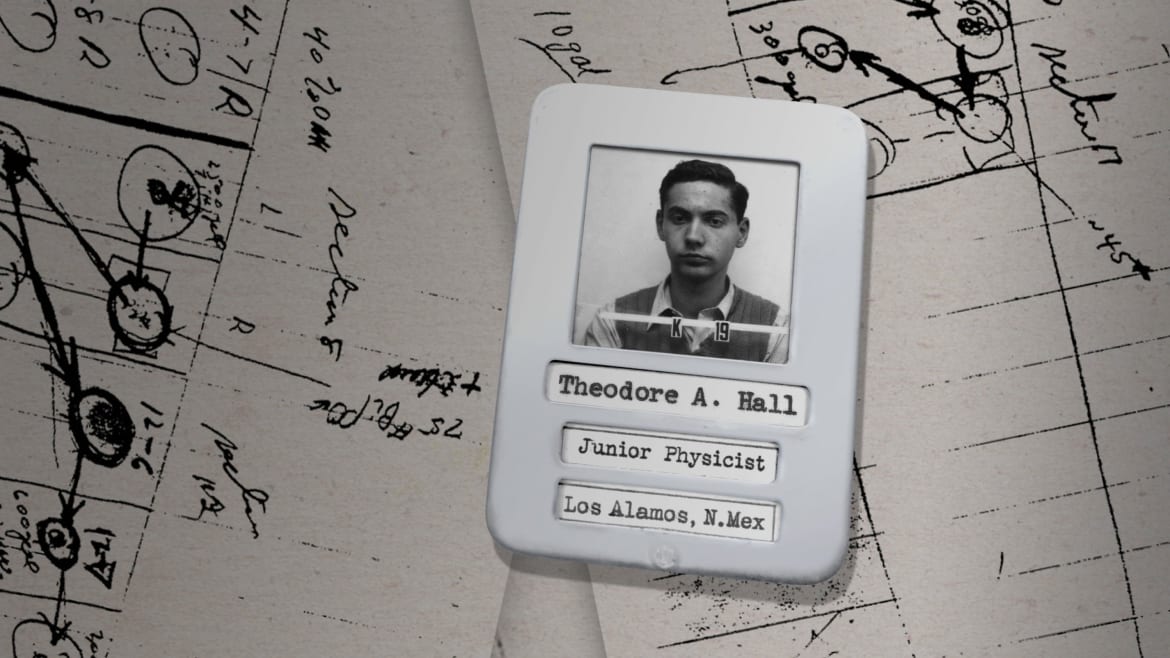Magnolia Pictures
Theodore Hall was an 18-year-old Harvard senior when, in 1944, he was recruited to join the Manhattan Project. As a member of J. Robert Oppenheimer’s team, he studied the physical properties of Uranium-235, the material used for the first atomic bomb (“Little Boy”) that was dropped on Hiroshima, and worked on the implosion bomb (“Fat Man”) used against Nagasaki. He was, by all accounts, an immensely talented physicist. As was revealed decades later, he was also a traitor, having passed designs and information from Los Alamos to the Soviet Union along with his longtime friend Saville Sax. Despite the government’s suspicions, it was a secret known by only a few (most notably, his wife Joan), and one that he maintained until the late 1990s, when it became public knowledge shortly before his 1999 death.
With Oppenheimer currently flourishing at the box office, A Compassionate Spy (Aug. 4, in theaters), Steve James’ documentary portrait of Hall, arrives at a fortuitous cinematic moment, and its links with that blockbuster extend to the fact that its subject was a communist who came to have grave regrets about the weapon he’d helped create. Unfortunately, whereas Christopher Nolan’s masterpiece paints a complicated portrait of its protagonist and the Manhattan Project, A Compassionate Spy takes a far more rose-tinted, one-note view of Hall—a tack that requires skirting past major conflicting particulars and eschewing the very uncertainty that Hall himself exhibits in numerous archival interviews.
Hoops Dreams director James’ documentary shares many parallels with Nolan’s film, as both concern genius physicists whose communist sympathies (and, in Hall’s case, party affiliation) colored their reactions to their A-bomb achievement and got them into post-WWII trouble with the powers that be. In Hall’s case, however, those problems were largely self-instigated, given that he and Sax willingly plotted—through coded letters about Walt Whitman’s Leaves of Grass—to deliver America’s classified nuclear know-how to the Soviets. When asked during a 1999 CNN/BBC chat, Hall summed up his reason for doing so thusly: “I guess a major factor would be compassion.”

